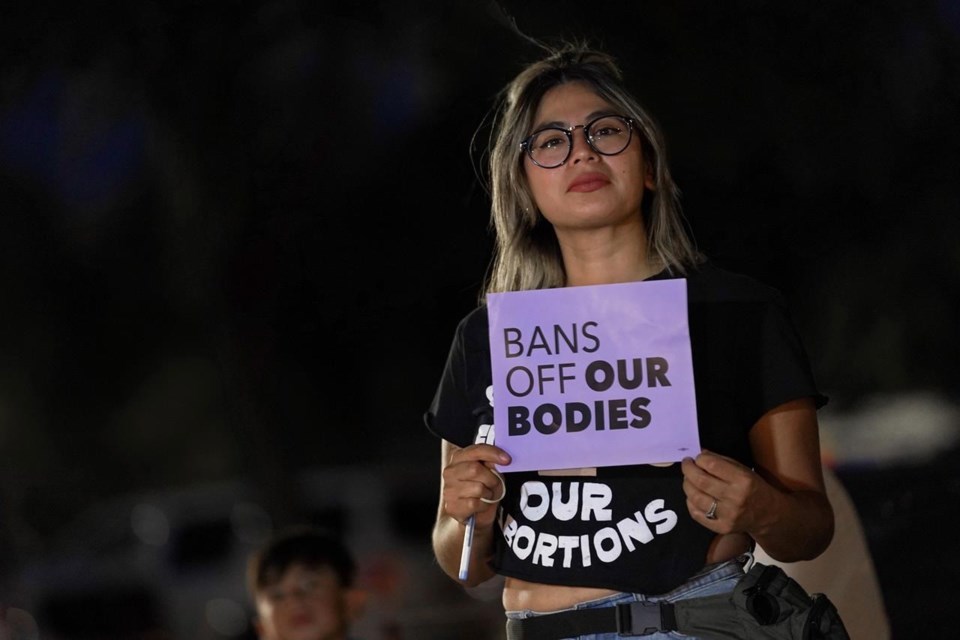PHOENIX (AP) — Legal abortions that restarted in Arizona this week after a court blocked enforcement of a pre-statehood ban will be able to continue for at least five weeks while an appeals court considers the case.
A schedule set Tuesday for Planned Parenthood and the Arizona attorney general's office lawyers to file their legal briefs in the case means the Arizona Court of Appeals can't decide the case until at least Nov. 17. The appeals court blocked enforcement of the Civil War-era law on Friday, reversing at least for now a .
Clinics across the state ceased all abortion after that ruling. It was the second time since the and allowed states to ban abortions that clinics stopped serving women. They had ceased care after Roe was overturned, then restarted in mid-summer after a that clinics feared could be used to prosecute providers.
At least two of the state's major abortion providers restarted operations this week, and a third served walk-ins for consultations for the abortion pill on Tuesday but has not set a full schedule for future appointments. But abortions can only be provided now through 15 weeks of pregnancy under a law passed by the Republican-controlled Legislature and signed by Republican Gov. Doug Ducey in March. The previous limit under now-overruled Supreme Court precedent was about 24 weeks.
Planned Parenthood of Arizona had operated clinics for surgical abortions in Tucson and Phoenix and provided abortion pills in those cities and in Flagstaff before the high court's decision. It is only serving Tucson now, but hopes to resume serving Phoenix patients once it has staff in place.
A second major provider, Camelback Family Planning in Phoenix, began providing a full range of abortion services on Monday.
Arizona women seeking abortions have been whipsawed by the state's competing laws since the high court's decision. The new 15-week ban specifically said it did not repeal the pre-statehood law that bans abortions unless the life of the mother is at risk.
The pre-statehood abortion ban law has been blocked since Roe was decided in 1973, but Republican Attorney General Mark Brnovich asked a court in Tucson to allow it to be enforced this summer. The law dating to 1864 carries a prison sentence of two to five years.
Brnovich said the only reason the law was blocked was because of the Roe decision.
A Tucson judge agreed, rejecting arguments from Planned Parenthood and its Arizona affiliate that a host of abortion law enacted since that case was decided should take precedence over the old law and lifted the injunction barring enforcement,
But a three-judge panel of the court of appeals reversed that order, at least for now.
Presiding Judge Peter Eckerstrom wrote Friday that a stay is appropriate “given the acute need of healthcare providers, prosecuting agencies, and the public for legal clarity as to the application of our criminal laws. Notably, in the underlying litigation both parties sought some form of such clarification from the court.”
Bob Christie, The Associated Press




